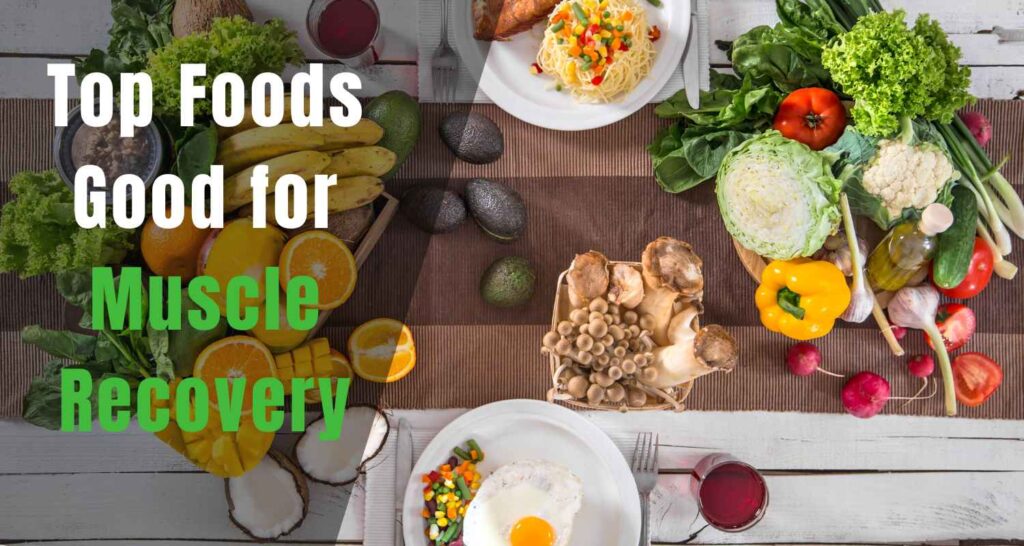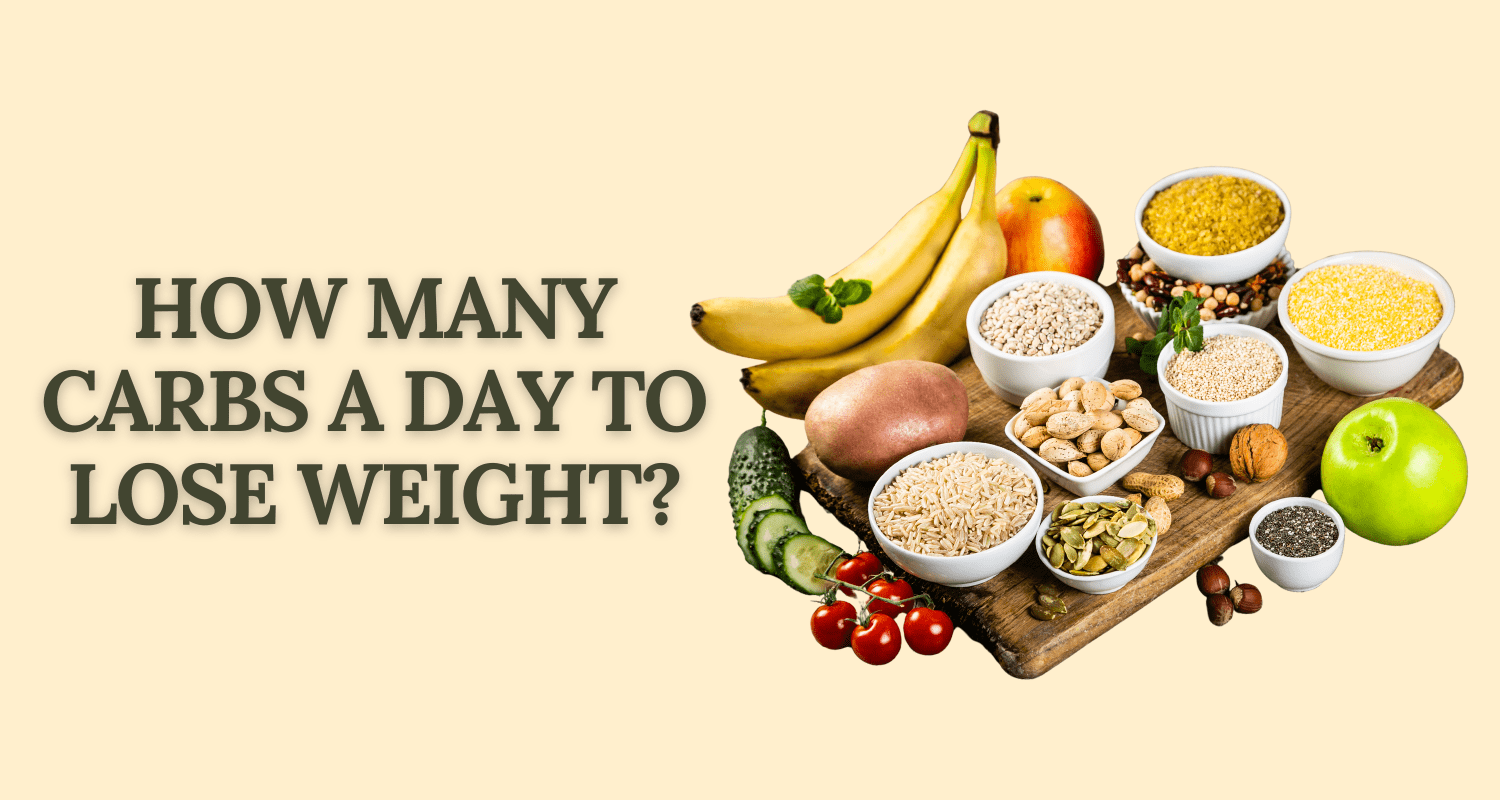Did you know that the food you eat plays a critical role in muscle recovery?
Whether you’re an athlete, a fitness enthusiast, or someone looking to build and repair muscles, incorporating the right foods into your diet can make a significant difference.
In this article, we will explore the top foods good for muscle recovery and growth.
These foods provide essential nutrients to fuel muscle repair, reduce soreness, and support overall recovery after intense workouts.
By understanding the importance of a muscle recovery diet and incorporating these foods into your meals, you can accelerate the healing process, optimize your training results, and stay at the top of your game.
Let’s explore the top foods good for muscle recovery.
Key Takeaways:
- Fueling muscle recovery requires consuming the right foods good for muscle recovery.
- A muscle recovery diet supports muscle repair, reduces soreness, and promotes overall growth.
- The top foods good for muscle recovery provide essential nutrients for optimal recovery.
- Incorporate protein-rich foods and other key nutrients to enhance muscle repair and reduce muscle soreness.
- Staying properly hydrated is crucial with consuming top foods good for muscle recovery.
Importance of Post-Workout Nutrition for Muscle Recovery
Post-workout nutrition is crucial for maximizing muscle recovery and promoting overall growth.
Consuming the right foods after a workout provides your body with the necessary nutrients to replenish energy stores, repair damaged muscle tissues, and stimulate muscle protein synthesis.
The Benefits of Post-Workout Nutrition
When you engage in intense exercise, your muscles undergo stress and depletion of glycogen stores.
To support optimal recovery, it is essential to replenish these glycogen stores quickly.
Consuming carbohydrates post-workout helps restore glycogen levels, ensuring your muscles have the energy they need for repair and growth.
Moreover, post-workout meals that include protein are vital for muscle repair and growth.
Proteins contain essential amino acids that aid in repairing and rebuilding muscle tissues that have been damaged during your workout. By consuming protein-rich foods, you support muscle protein synthesis, enhancing recovery and stimulating muscle growth.
Best Foods for Post-Workout Nutrition
For effective muscle recovery, it is essential to choose the right post-workout foods.
Incorporating a combination of carbohydrates and protein is ideal for maximizing nutrient absorption and facilitating muscle recovery.
Here are some examples of the best post-workout foods:
- Lean meats, such as chicken or turkey, provide high-quality protein, which aids in muscle repair.
- Eggs are an excellent source of protein and contain essential amino acids that promote muscle recovery.
- Fatty fish, like salmon and tuna, are rich in omega-3 fatty acids that reduce inflammation and support muscle repair.
- Quinoa is a complete protein source and also provides carbohydrates for replenishing glycogen stores.
- Greek yogurt contains protein and is an excellent source of calcium, which is crucial for muscle function and recovery.
- Blueberries are rich in antioxidants, which help reduce exercise-induced muscle damage and inflammation.
Remember to hydrate adequately after your workout as well.
Water is essential for nutrient absorption and helps regulate body temperature, ensuring your muscles receive the necessary hydration for recovery.
By prioritizing post-workout nutrition and incorporating these best post-workout foods into your diet, you can optimize muscle recovery, reduce muscle soreness, and achieve your fitness goals more efficiently.
Protein-Rich Foods for Muscle Repair
Protein is a crucial nutrient for muscle repair and growth.
Including protein-rich foods in your post-workout meals can significantly support muscle recovery and enhance your overall fitness journey.
When selecting protein sources, it’s important to prioritize high-quality options.
These provide essential amino acids that aid in muscle repair and promote optimal recovery. Incorporating a variety of protein-rich foods into your muscle recovery diet is key to meeting your nutritional needs.
Here are some excellent choices of protein-rich foods to include in your post-workout meals:
- Lean Meats: Chicken breast, turkey, lean beef, and pork loin
- Fish: Salmon, tuna, trout, and sardines
- Dairy Products: Greek yogurt, cottage cheese, and low-fat milk
- Eggs: Whole eggs, egg whites
- Legumes: Lentils, chickpeas, black beans, and tofu
- Nuts and Seeds: Almonds, walnuts, pumpkin seeds, and chia seeds
- Quinoa: A plant-based complete protein
Incorporating these protein-rich foods into your muscle recovery diet will provide your body with the building blocks it needs to repair and rebuild muscles after intense workouts.
Remember to combine protein-rich foods with other nutrients such as carbohydrates and healthy fats to create well-balanced meals that fuel your recovery process.
Nutrients for Muscle Repair and Reduced Soreness
Aside from protein, other key nutrients play a crucial role in muscle repair and help reduce muscle soreness.
These nutrients provide the necessary building blocks for recovery and contribute to the overall healing process. By incorporating foods rich in these nutrients into your diet, you can enhance the recovery process and alleviate post-workout muscle soreness.
One important nutrient for muscle repair is omega-3 fatty acids.
These healthy fats have anti-inflammatory properties, which can help reduce muscle soreness and inflammation after intense workouts. Foods such as fatty fish (like salmon and sardines), chia seeds, and walnuts are excellent sources of omega-3 fatty acids.
Another important nutrient for muscle repair is vitamin C.
This antioxidant vitamin helps protect against exercise-induced muscle damage and aids in collagen production, which is essential for tissue repair. Citrus fruits, strawberries, bell peppers, and broccoli are all rich sources of vitamin C.
Additionally, consuming foods rich in magnesium can help reduce muscle soreness and promote muscle relaxation.
Magnesium plays a role in muscle function and helps regulate nerve impulses. Good dietary sources of magnesium include nuts and seeds, spinach, avocados, and dark chocolate.
Finally, don’t forget about the importance of antioxidants in muscle recovery.
Antioxidants help protect against oxidative stress, which can impair muscle repair. Foods like berries (such as blueberries and cherries), dark leafy greens, and green tea are all packed with antioxidants.
Incorporate these nutrients for muscle repair into your diet:
- Omega-3 fatty acids: fatty fish (salmon, sardines), chia seeds, walnuts.
- Vitamin C: citrus fruits, strawberries, bell peppers, broccoli.
- Magnesium: nuts and seeds, spinach, avocados, dark chocolate.
- Antioxidants: berries (blueberries, cherries), dark leafy greens, green tea.
By including these nutrient-rich foods in your post-workout meals, you can provide your muscles with the necessary tools for repair and recovery, while also reducing muscle soreness and promoting overall muscle health.
Hydration and Muscle Recovery
Proper hydration is often overlooked but plays a crucial role in muscle recovery.
Staying properly hydrated is essential to support muscle repair and optimize recovery after intense workouts.
Adequate hydration ensures that your body can effectively transport nutrients to your muscles and remove waste products, promoting faster recovery and reducing the risk of muscle cramps and fatigue.
The Importance of Staying Hydrated
When you exercise, your body loses water through sweat, leading to dehydration.
Dehydration can impair muscle recovery and performance.
It’s important to replenish lost fluids to maintain optimal muscle function and support the recovery process.
Guidelines for Hydration
- Water Intake: It is recommended to consume at least 8 glasses (64 ounces) of water per day. However, for individuals engaged in intense physical activity, such as strength training or endurance exercises, it is advisable to increase water intake to meet the increased fluid loss.
- Pre-Workout Hydration: Drink water before your workout to ensure your body starts properly hydrated.
- During Workout Hydration: Take small sips of water during your workout to maintain hydration. Refrain from drinking large amounts of water at once, as it can lead to discomfort.
- Post-Workout Hydration: After your workout, rehydrate by consuming water and other hydrating beverages. Including electrolyte-rich drinks can help replenish minerals lost through sweat.
Hydration Strategies for Post-Workout Recovery
- Drink Water Immediately: Rehydrate with a glass of water as soon as possible after your workout to kickstart the recovery process.
- Include Hydrating Foods: Incorporate water-rich foods, such as fruits and vegetables, into your post-workout meals to support hydration.
- Monitor Urine Color: Check the color of your urine as a hydration indicator. Clear or light yellow urine usually indicates proper hydration, while darker urine suggests dehydration.
- Use Hydration Apps or Trackers: Utilize smartphone apps or fitness trackers to monitor your water intake and set reminders to drink water throughout the day.
Remember, staying properly hydrated is a vital component of a muscle recovery diet.
By following the guidelines and implementing effective hydration strategies, you can optimize your muscle recovery and support your overall fitness journey.
Incorporating Muscle Recovery Foods into Your Diet
Now that we’ve covered the top foods and nutrients for muscle recovery, it’s time to discuss how to incorporate top foods good for muscle recovery into your daily diet.
By including these muscle recovery foods in your meals, you can provide your body with the necessary nutrients for optimal muscle repair and growth.
1. Plan your meals: Create a meal plan that includes the top foods for muscle recovery.
This will help you stay organized and ensure that you’re consuming the right nutrients at the right times. Focus on incorporating protein-rich foods, nutrient-dense vegetables, whole grains, and healthy fats into your meals.
2. Pre- and post-workout snacks: Before your workout, have a snack that combines carbohydrates and protein to fuel your muscles.
Opt for options like Greek yogurt with berries, a banana with almond butter, or a protein smoothie.
After your workout, have a post-workout snack that includes protein and carbohydrates to support muscle repair. Examples include a protein shake, a turkey and avocado wrap, or a chicken and quinoa salad.
3. Add protein to your meals: Ensure that each of your meals contains a good source of protein.
Incorporate lean meats like chicken, turkey, and fish, as well as plant-based sources such as beans, lentils, and tofu. Adding protein to your meals will provide the building blocks needed for muscle repair and growth.
4. Include antioxidant-rich foods: Antioxidants can help reduce inflammation and promote muscle recovery.
Incorporate foods rich in antioxidants, such as berries, leafy greens, citrus fruits, and nuts, into your diet. These foods will help protect your muscles from oxidative stress and speed up the recovery process.
5. Hydrate properly: Don’t forget the importance of hydration in muscle recovery.
Drink plenty of water throughout the day to support optimal muscle function and recovery. Aim to consume at least 8 glasses of water per day and increase your intake during intense workouts or hot weather.
6. Meal prep and pack snacks: To stay consistent with your muscle recovery diet, consider meal prepping and packing snacks in advance.
This will help you avoid unhealthy food choices when you’re on the go and ensure you always have nutritious options available when hunger strikes.
By incorporating these practical tips and meal ideas into your daily routine, you can effectively incorporate muscle recovery foods into your diet.
Remember, consistency is key when it comes to supporting muscle repair and growth. Fuel your body with the right nutrients, stay hydrated, and make meal planning a priority for optimal results.
Conclusion
In conclusion, a proper diet rich in top foods good for muscle recovery is crucial for supporting muscle repair, reducing soreness, and facilitating overall growth.
Incorporating the recommended foods and nutrients into your post-workout meals can optimize your muscle recovery and enhance your fitness journey.
Protein-rich foods play a key role in muscle repair and growth.
By consuming high-quality proteins such as lean meats, fish, eggs, and legumes, you can provide your body with the necessary building blocks for muscle recovery.
Additionally, top foods good for muscle recovery, don’t forget to include other essential nutrients like carbohydrates, healthy fats, vitamins, and minerals.
Hydration is often underrated but plays a significant role in muscle recovery.
Staying properly hydrated supports muscle repair, helps flush out toxins, and maintains optimal performance. Ensure you drink enough water throughout the day, especially during and after workouts, to aid in the recovery process.
To incorporate muscle recovery foods into your diet effectively, plan your post-workout meals. Prepare balanced and nutritious meals that include a variety of foods from different food groups.
Consider consulting a registered dietitian for personalized recommendations tailored to your specific fitness goals and dietary needs.
FAQs
What are the top foods good for muscle recovery?
Some of the top foods good for muscle recovery include lean meats, such as chicken and turkey, fish, like salmon and tuna, eggs, Greek yogurt, cottage cheese, quinoa, and brown rice, and fruits and vegetables rich in antioxidants.
What should I eat on muscle recovery days?
On muscle recovery days, prioritize foods rich in protein to support muscle repair, along with carbohydrates for replenishing energy stores.
How can I recover my muscles faster?
To speed up muscle recovery, ensure you’re getting adequate rest, hydration, and nutrition. Incorporate activities like stretching, foam rolling, and low-impact exercises.
What foods are good for muscle tissue?
Foods high in protein such as lean meats, eggs, dairy, legumes, and tofu are excellent for muscle tissue repair and growth.
What’s best for muscle recovery?
The best practices for muscle recovery include proper nutrition, hydration, rest, and incorporating active recovery techniques like stretching and light exercise.
Do muscles need 2 days to recover?
Muscle recovery time varies depending on factors like intensity of exercise and individual fitness level. While some muscles may recover within a day, others may require more time.
Is 2 days enough for muscle recovery?
The adequacy of a 2-day recovery period depends on various factors like the intensity of exercise, individual physiology, and overall lifestyle. Some individuals may find it sufficient, while others may require more time.
Disclaimer: This content, including advice, provides generic information only. It is not a substitute for a qualified medical opinion. Always consult a specialist or your doctor for more information. Nutrition Cult does not claim responsibility for this information.




